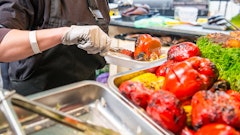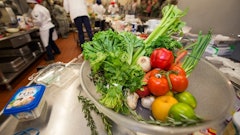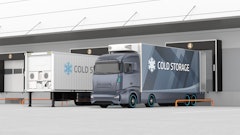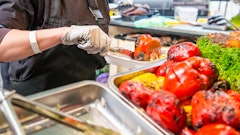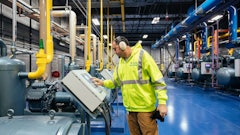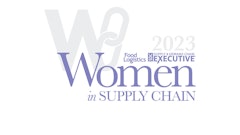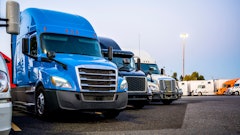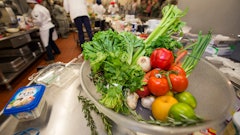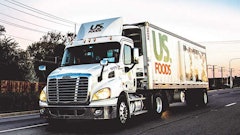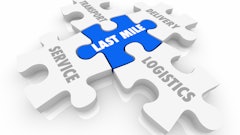You've worked in the foodservice industry for almost 25 years. What changes have you seen?
Dausinas: The advent of technology is the biggest change, especially with warehouse management systems and related solutions. There are many tools available to help improve operations and make companies more productive with less labor. You can track product in your warehouse with radio frequency. In my first job, my manager would say, "Hey, I just found that pallet of cherries we've been looking for all month." Now, you just have to check the WMS to find out where the product is—that's a huge change.
Technology on the transportation side, such as onboard computers, satellites and cell phones for truck drivers, has made a significant impact. If you need to talk to a driver, you can call him directly—you don't have to call five of your customers to find out where he is. Being able to communicate like that makes such a difference.
RFID (radio frequency identification) is coming down the line and we'll have to wait and see how that fits into the foodservice business. We're on the back end from a broadline distributor's standpoint and I don't know how quickly RFID is going to hit us, but certainly it will provide us with more information that will help us be more efficient at what we do.
What other changes are taking place?
Dausinas: Managing the workforce has become very challenging. When I started out, people had a strong work ethic: you were there to do a job, you worked really hard, got paid and were appreciative. Today, people expect more, such as flexible work hours, and we've had to adapt to that. It can get sticky when someone on the night crew wants to go to his son's baseball game and needs a couple of hours off, but we do our best to accommodate him because it goes a long way towards building good will.
Hiring and retaining drivers is also more difficult. We've become more regimented with the hours of service regulations. In the old days, on a Friday, the driver would start at 4 a.m. and work until midnight because that's when he made his bread and butter. With the hours of service, you can't even think about doing that. You have to be a lot more creative in what you do. And technology can help you deal with that.
What is the biggest logistical challenge facing Stanz Foodservice today?
Dausinas: We're competing against some very large companies, so we're facing the challenge of being cost competitive as well as being able to bring something to the market that these big guys can't. So we focus on that quite a bit. Our sales staff has become more consultative and we've added services that the large companies cannot deliver.
We're also trying to do unique things. I used to work for a niche distributor and what I learned was to find your niche and do it particularly well. For example, we're distributing fresh fish, which would have been unheard of in our company a few years ago. Every night, we pick it up in Chicago, crossdock it and get it out to our customers. We can get fish from Australia to our customers here in the Midwest within three days of the catch. It's one of things that we can do that is not readily available to the big dogs.
When we have our strategic planning meetings, I often refer to us as the P.T. boat against the battleships. We can get in and out very quickly, and can make decisions to take care of a customer within a couple of hours where it may take a few days or even a week for some of the larger companies.
What is your biggest work-related accomplishment to date?
Dausinas: My biggest accomplishment was winning Food Logistics' Golden Pallet Awards for best foodservice distributor. These guys here have done a great job in turning a lot of perceptions of our operations around for the company from a customers' standpoint. We've got the state of Indiana telling our customers they can buy from Stanz and that really makes a difference when you've got a push from some big entity. We just care a little bit more because it's that's much more important to us.
What keeps you up at night?
Dausinas: My night supervisor when he calls! All kidding aside, what's most important is making sure that the customer's orders are correct and that we're able to meet all of their needs. Order accuracy is critical. I'm not worried about the deliveries getting there on time because we have a good system. But I have to make sure the orders are right and I have to make sure that we're cost competitive from the operations side.
When fuel goes up, for example, we just can't tack on a fuel surcharge. So we have to more creative. If we decide to open up a new territory, what are the goals? What are we going to do when we break even and if we can't penetrate, when are we going to pull back? We have to track all those things very carefully. We have to continue to drive the inefficiencies out of the operation.




